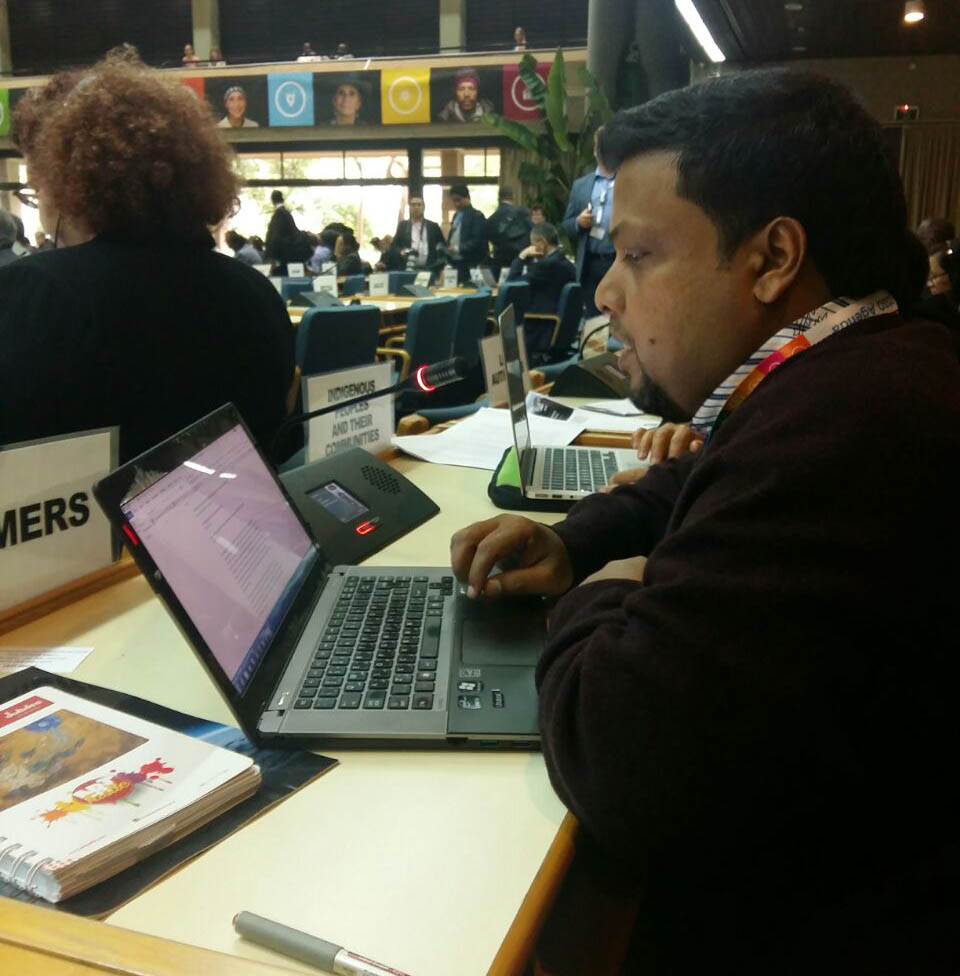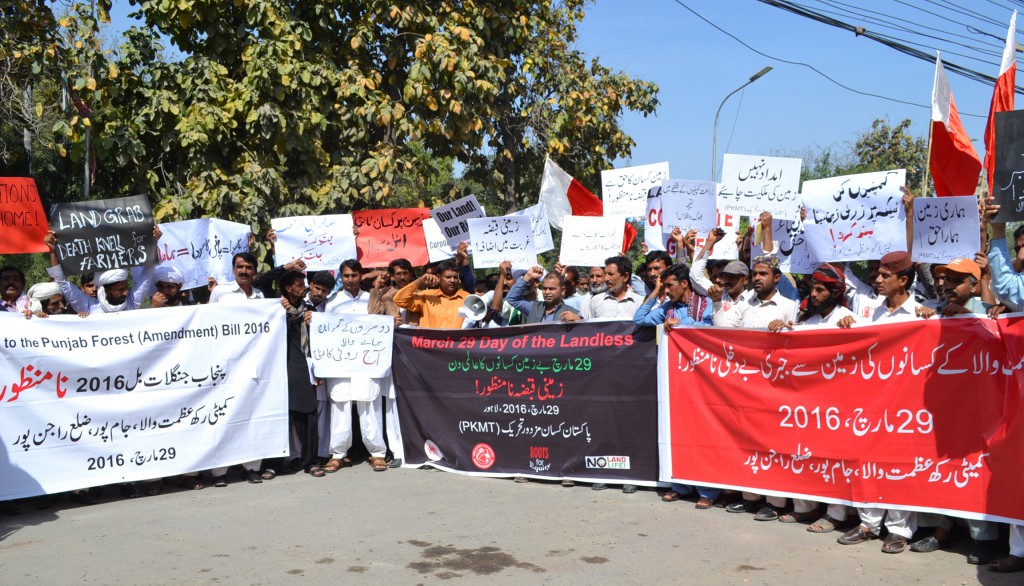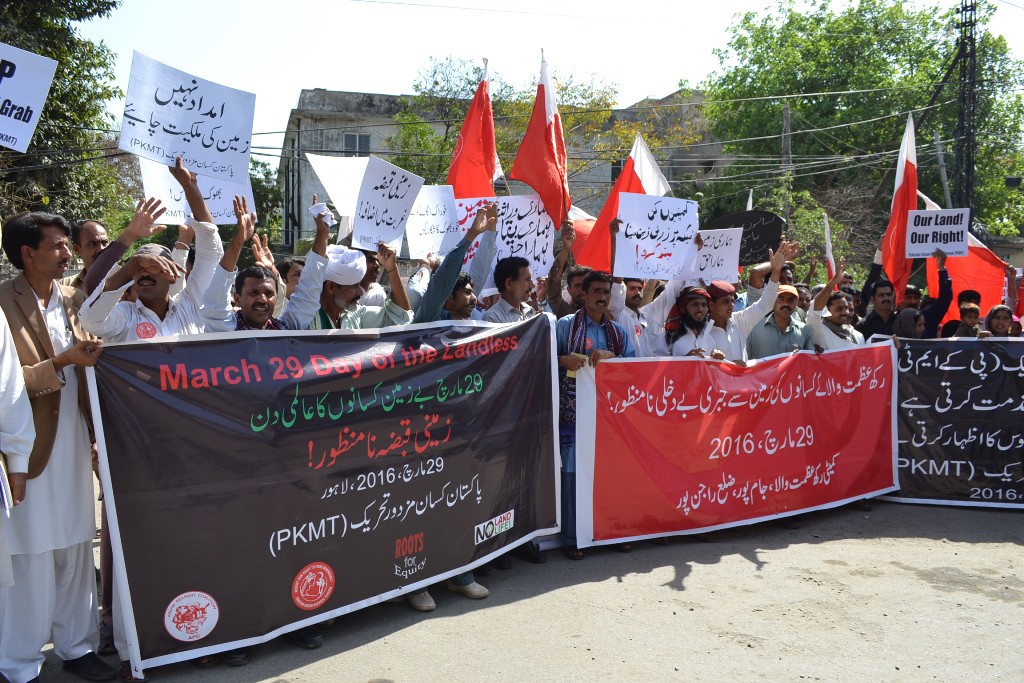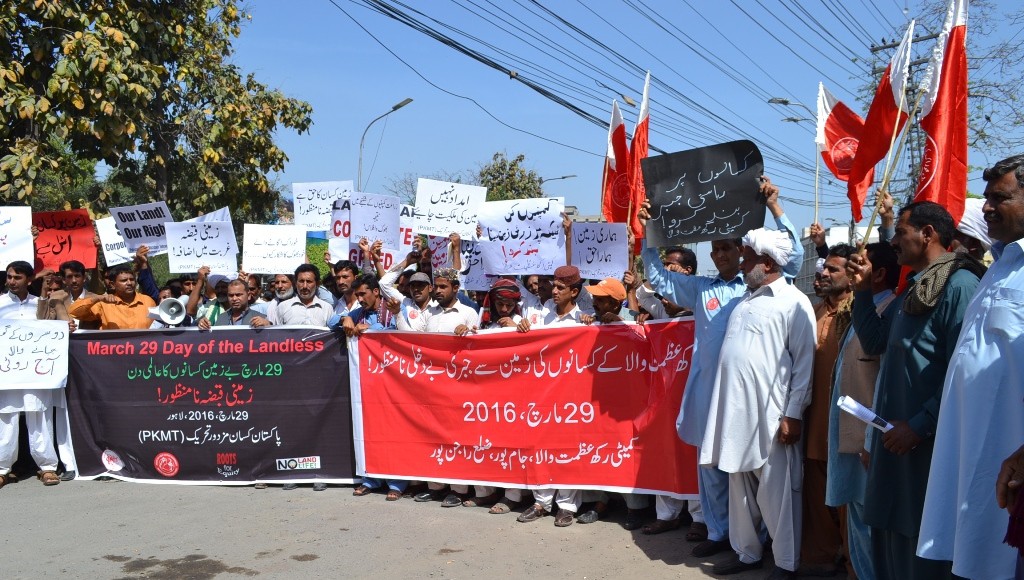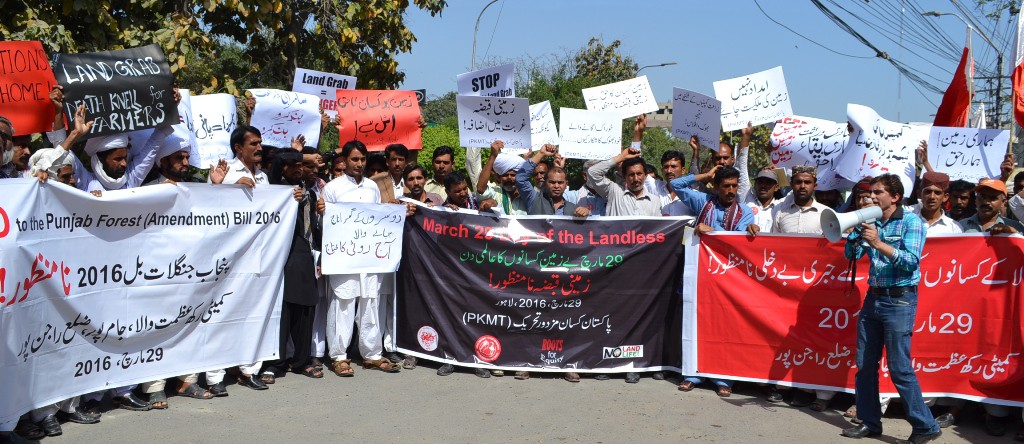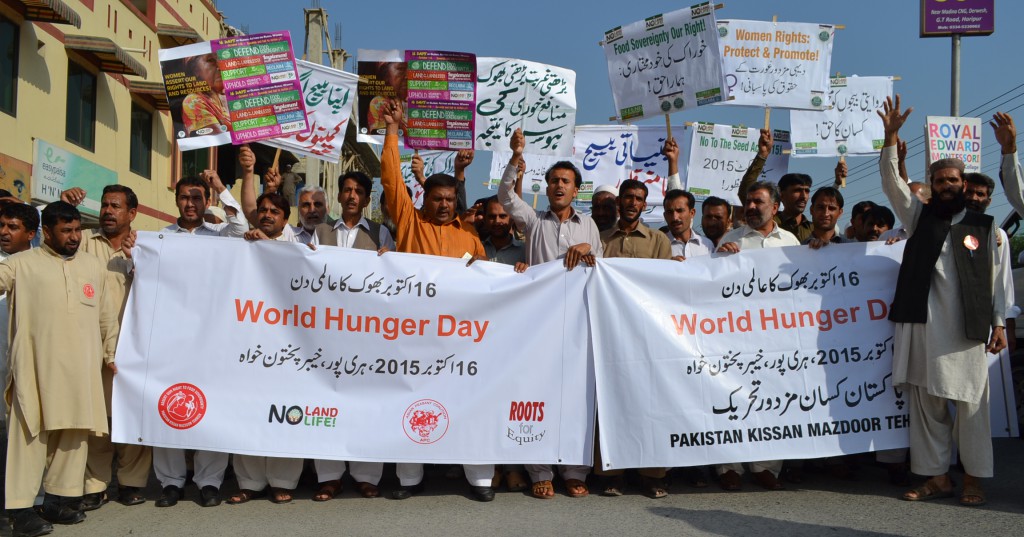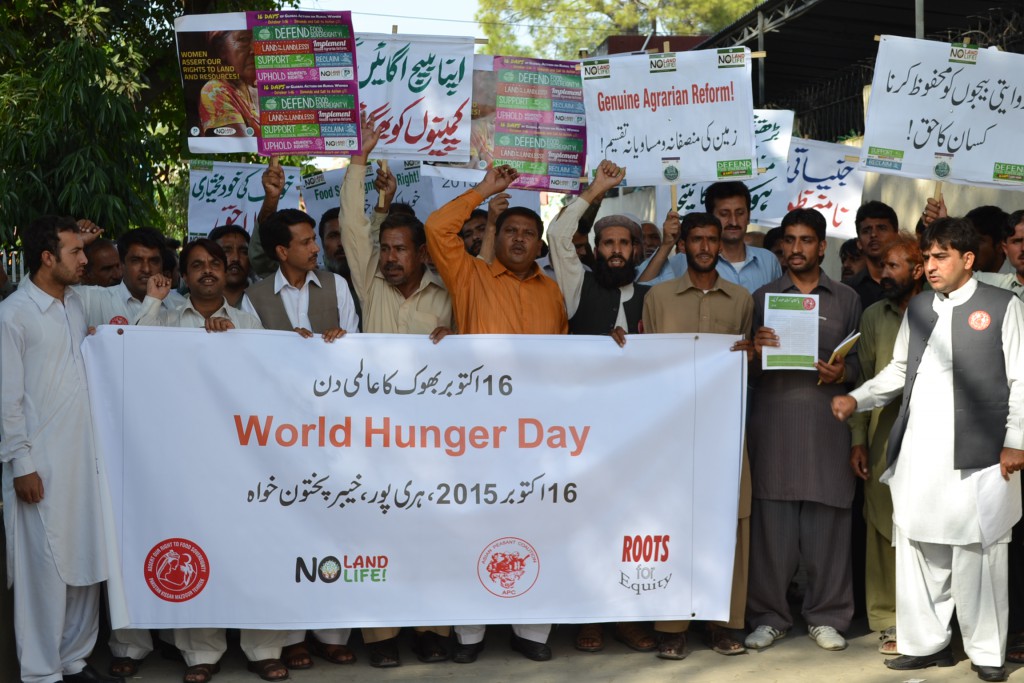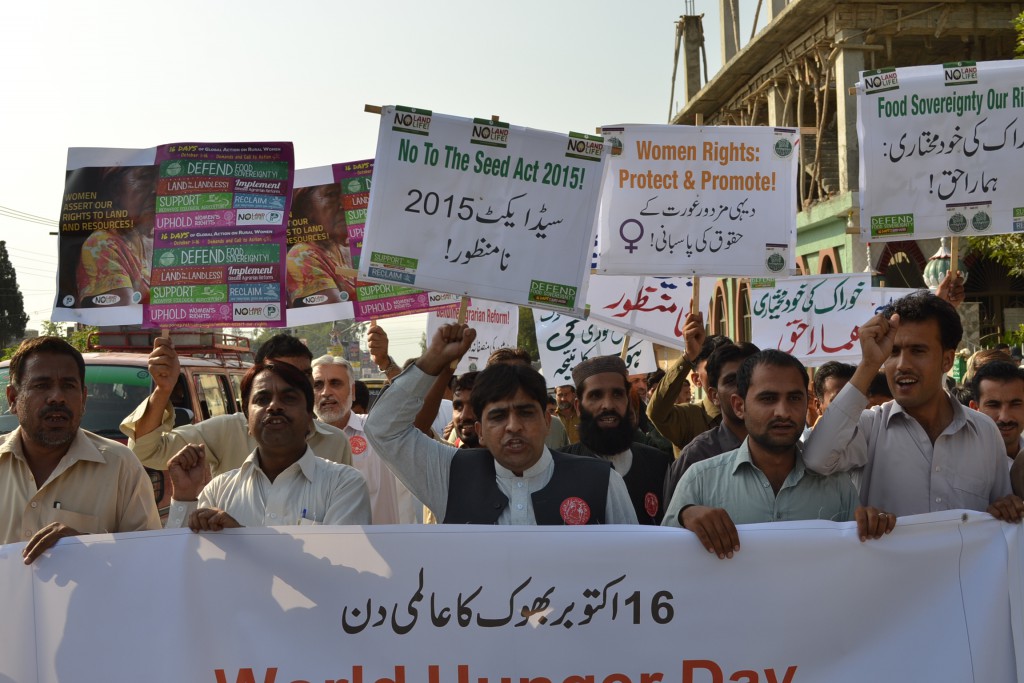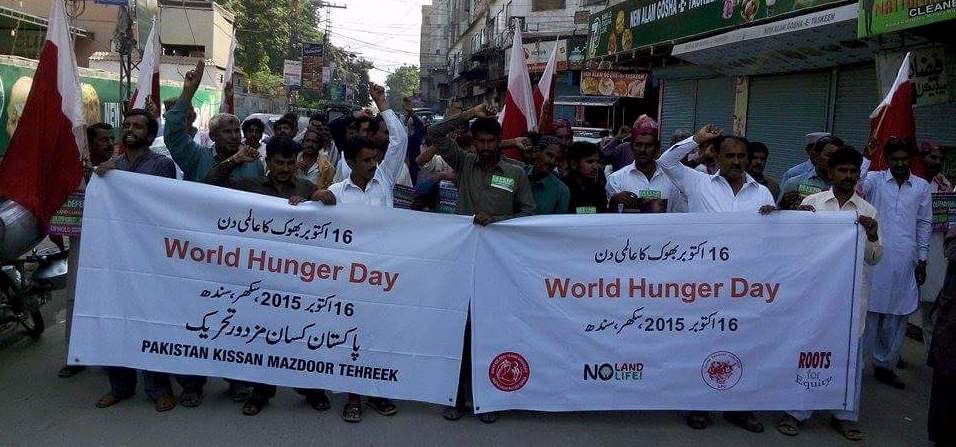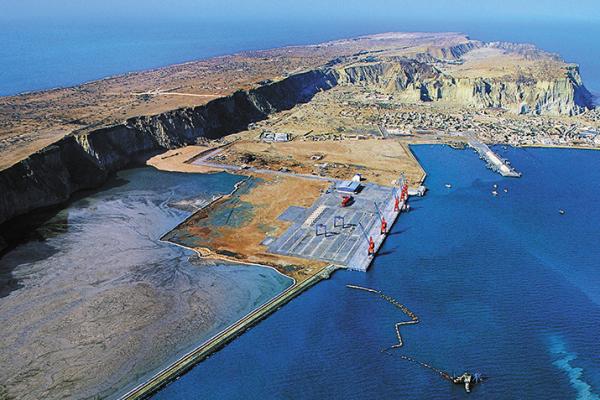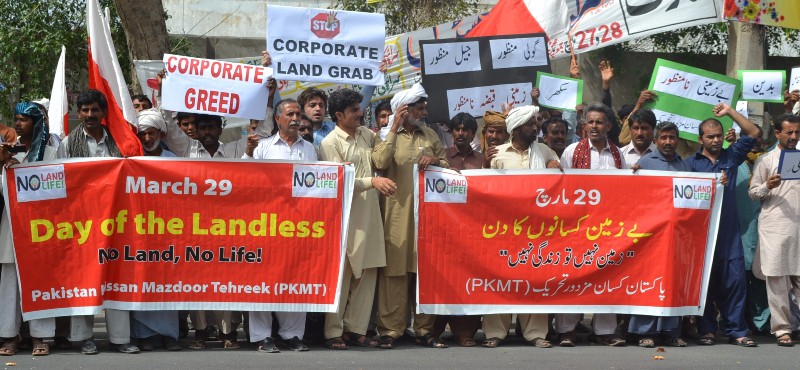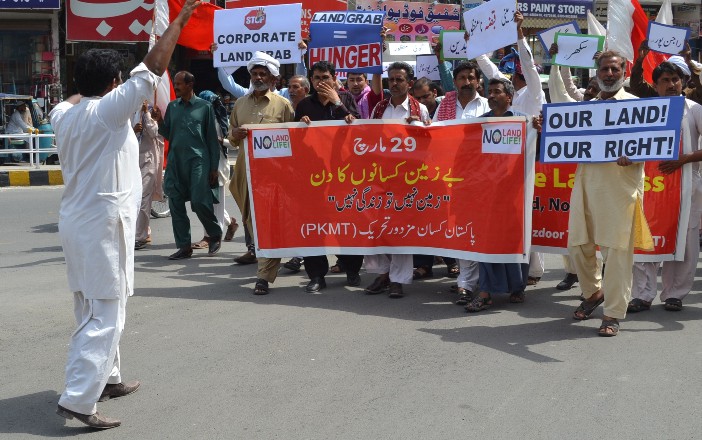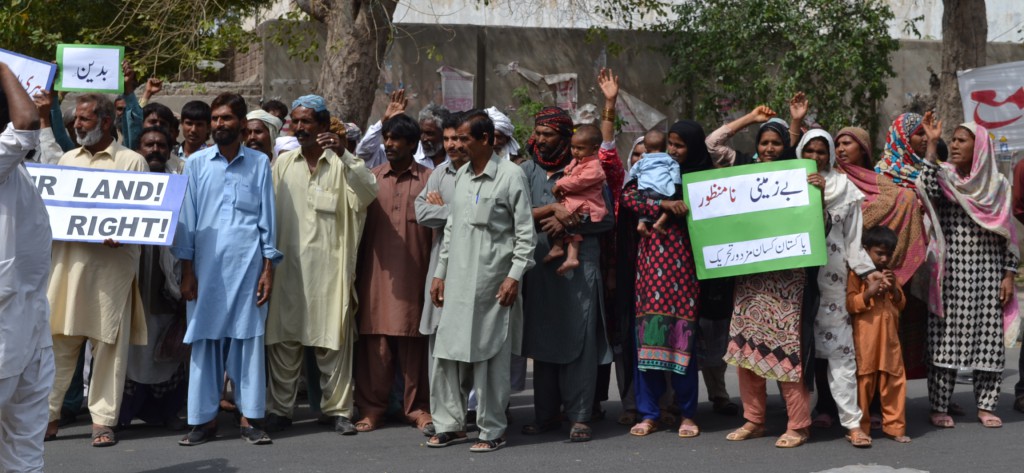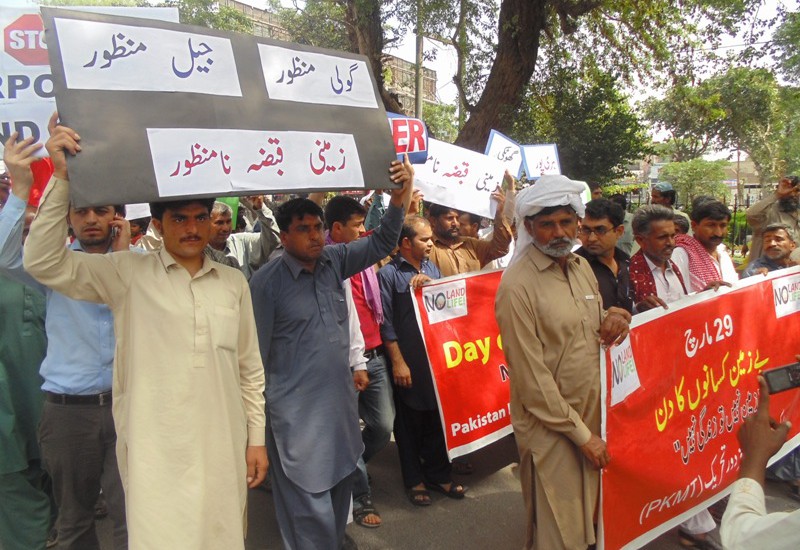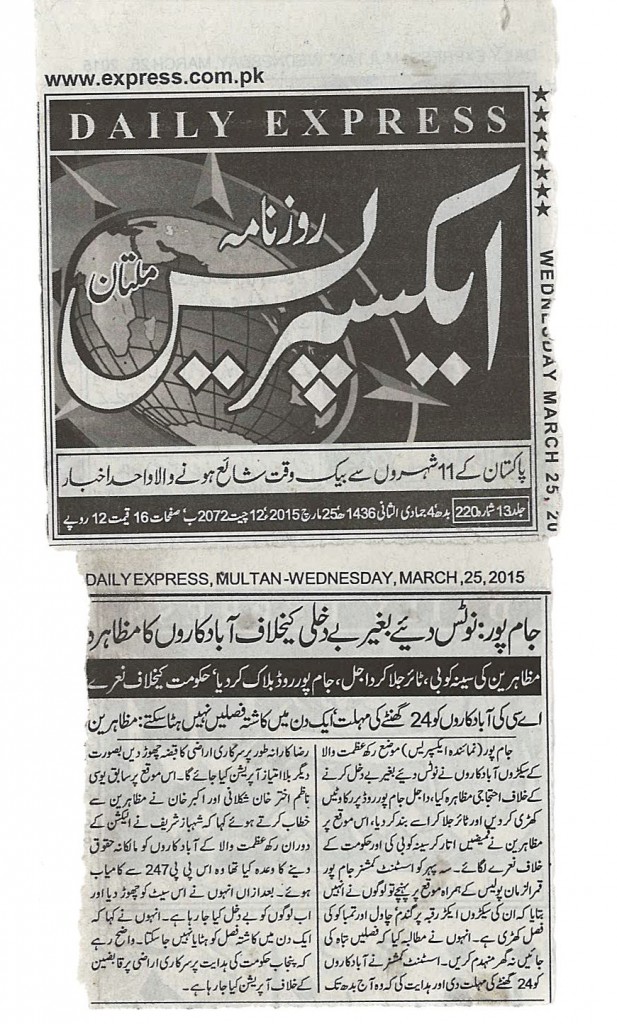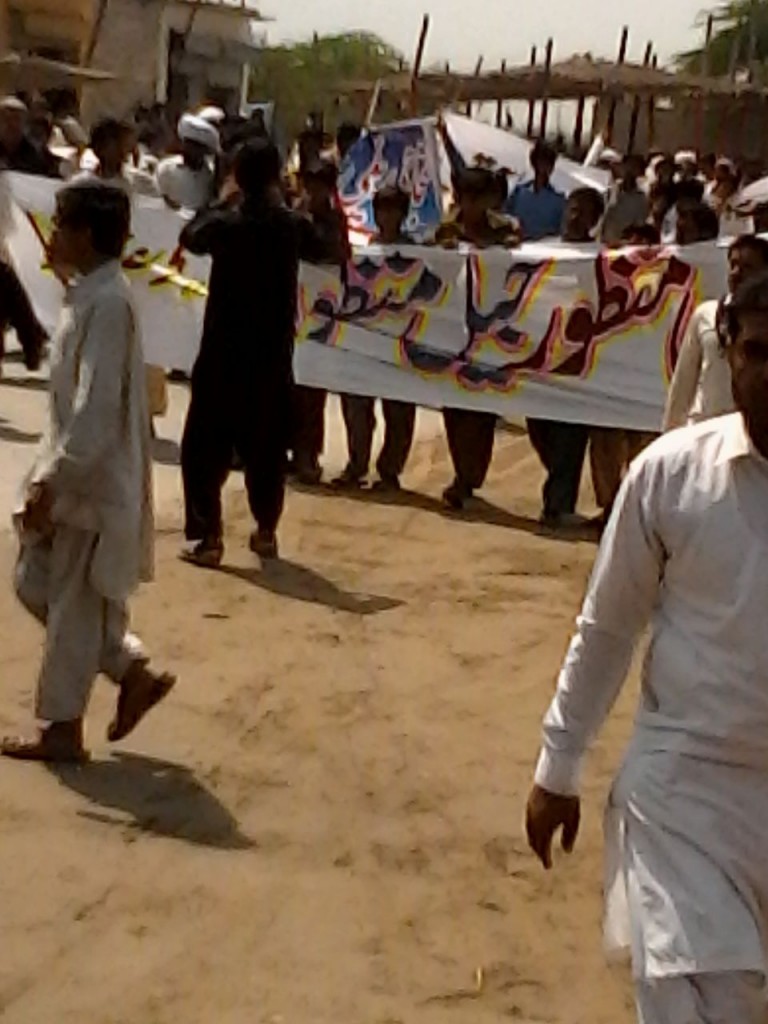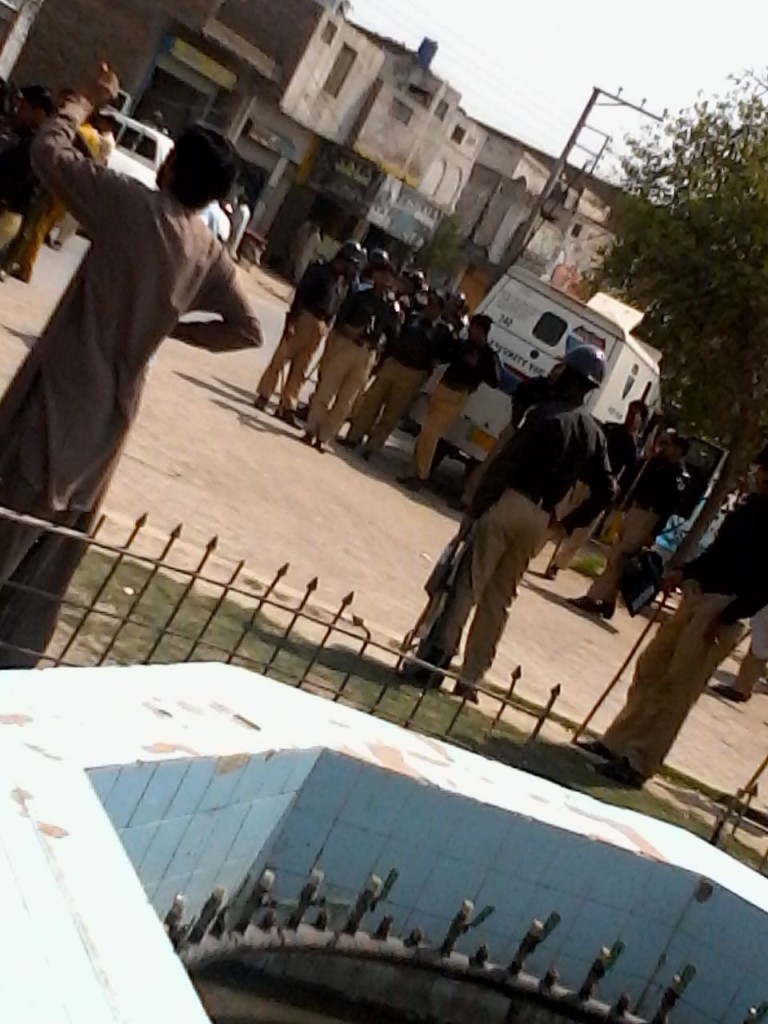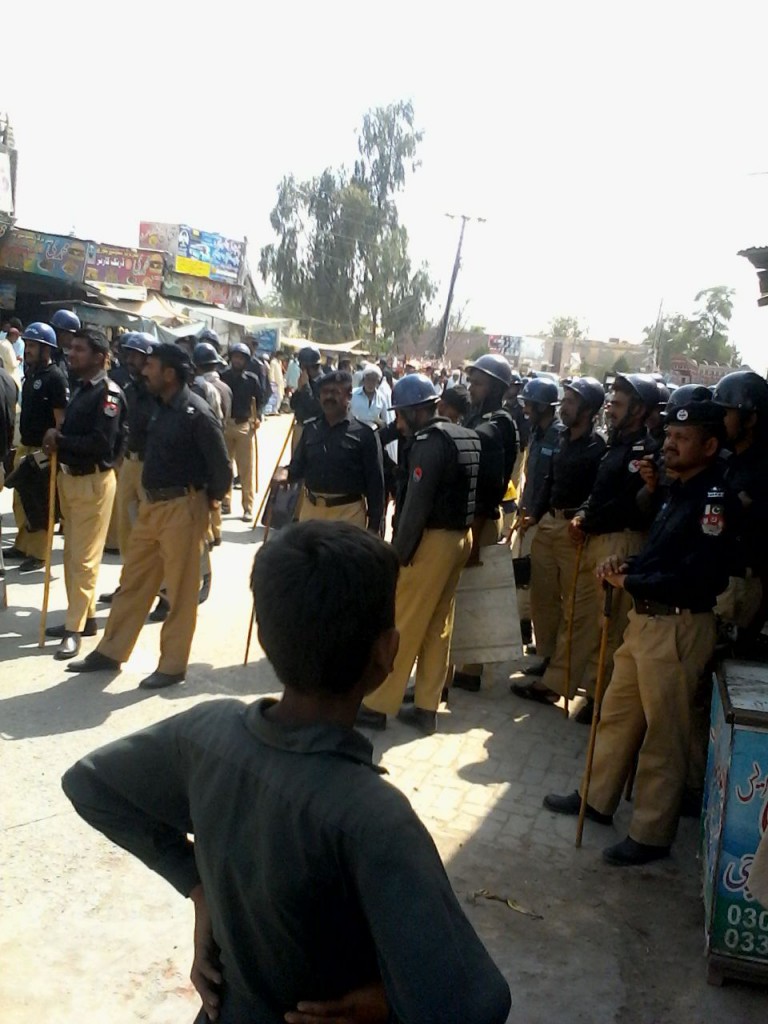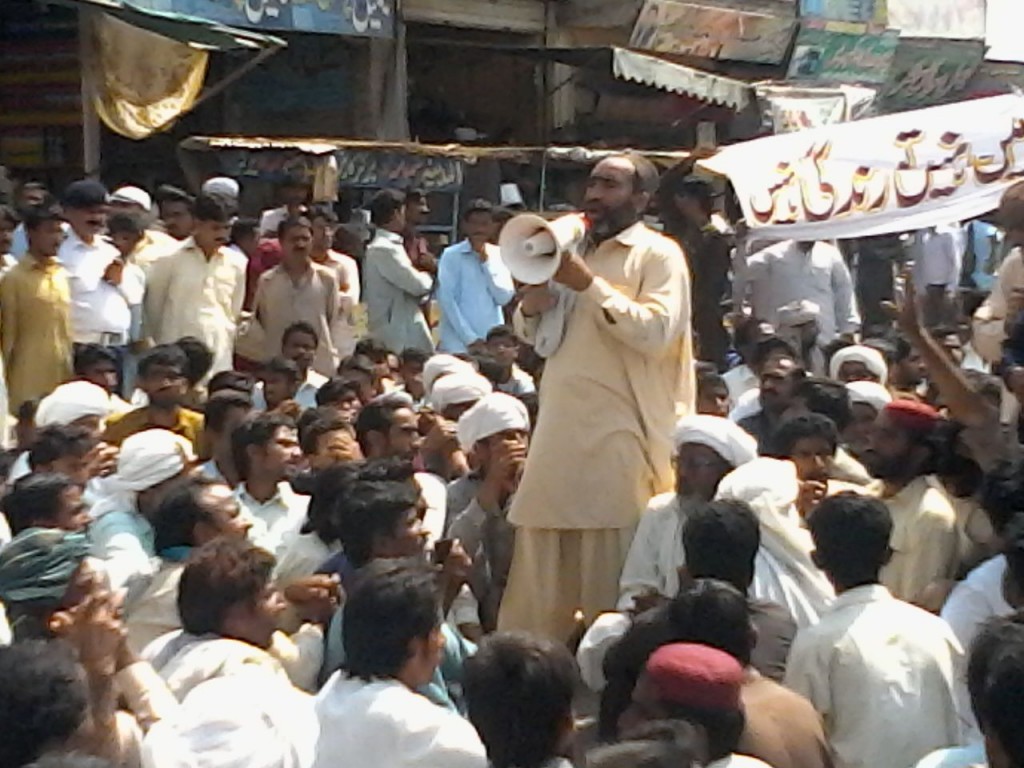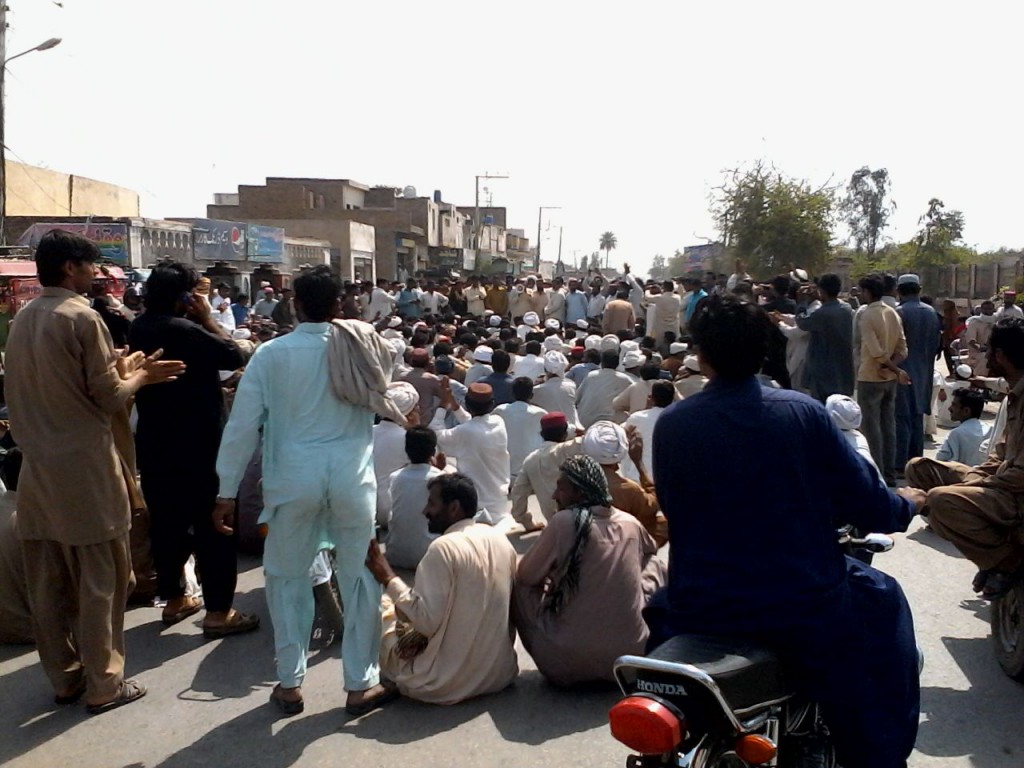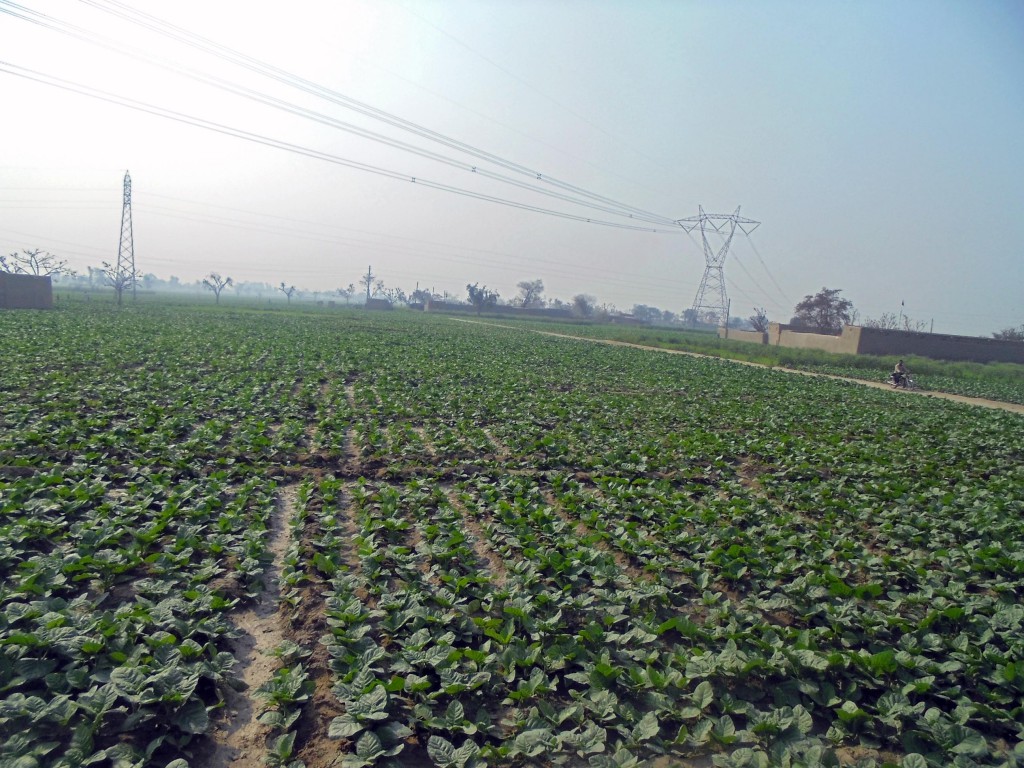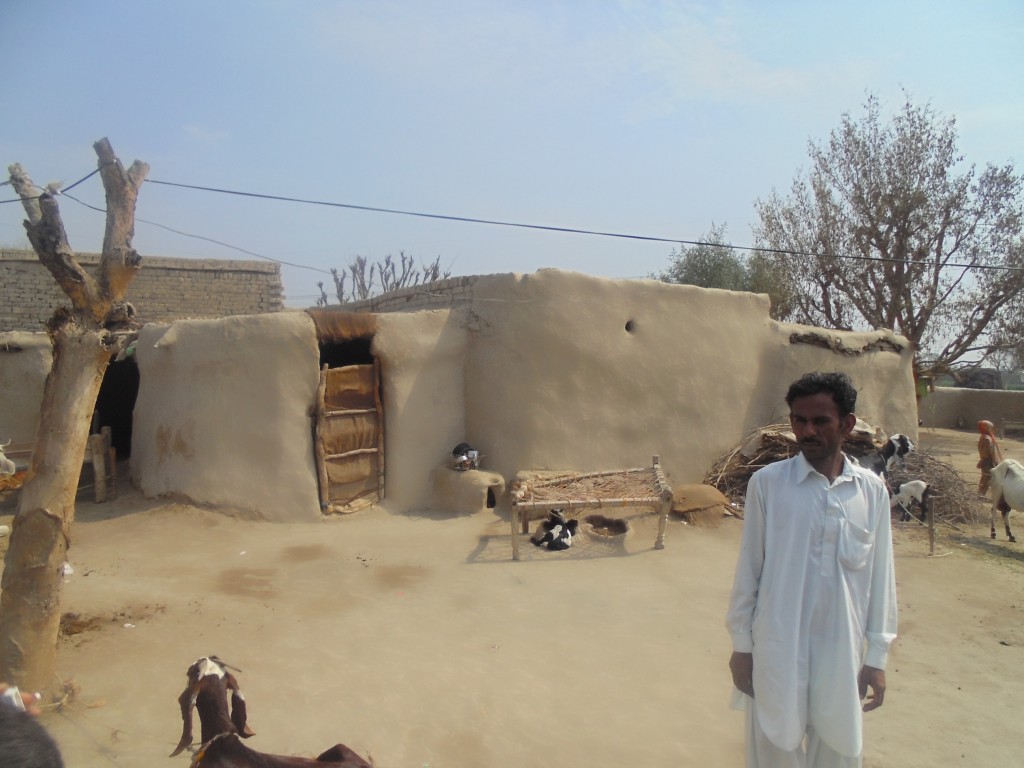May 24, 2016
Respected Chair, Excellences, Delegates. Colleagues from the UN Agencies, Major Groups and the CSOs
I am Wali Haider from Roots for Equity, Pakistan representing farmer major group
Unstainable practice of over extraction and overproduction is at the heart of unsustainable consumption and production. Agriculture and food production being marked as a lucrative sector has resulted in a tsunami of land grabs. At the same time, the pursuance of mega development projects for economic development and climate change mitigations such as mega dams, mining, oil exploration, creation of national parks, high voltage transmission and distribution lines and pursuance of extractive industries and special economic zones in indigenous territories and other rural communities with subsequent militarization process has led to land alienation and destruction of survival sources, cultures and identity of indigenous peoples, small scale farmers, fishing communities.
These patterns of production and consumption are not just wasteful but also increases inequalities. The world consumes more than half the world’s resources, but half the world’s wealth is in the hands of only 2% of the population. Despite millions of tons of food produced each day, with 1.3 billion tons going to waste each year, around 1 billion people worldwide suffer from acute hunger.
We can only speak of sustainable production when natural resource extraction is not defined by the profits earned by corporations, but by the needs of our communities and our peoples to survive, develop, and with a view to ensure their availability for generations to come.
We call upon states to support right to land, promotion and development of traditional occupation that conserves and sustains biological diversity and also brings in livelihoods to communities. Traditional knowledge systems and practices of indigenous peoples and local communities on agro-ecological farming and diverse production systems that have minimal dependence on chemical and technologies like GMOs, will address reduction in GHG emissions from agriculture. This contributes to attaining sustainable land use, healthy people and healthy environment. Today these sustainable resource management faces challenges of the unregulated globalized market systems and the invasion of extractive industries.
To minimize adverse impacts of hazardous chemicals on the environment and human health, governments must take measures to achieve by 2020 the sound management of chemicals and all wastes throughout their life cycle as envisioned in the Strategic Approach to International Chemicals Management (SAICM). The phase out of marketing and use of highly hazardous pesticides (HHPs) and the promotion of and support to sustainable ecological agriculture would greatly contribute to secure a healthy environment and promote good health in both rural and urban communities.
Thank you Madam!

